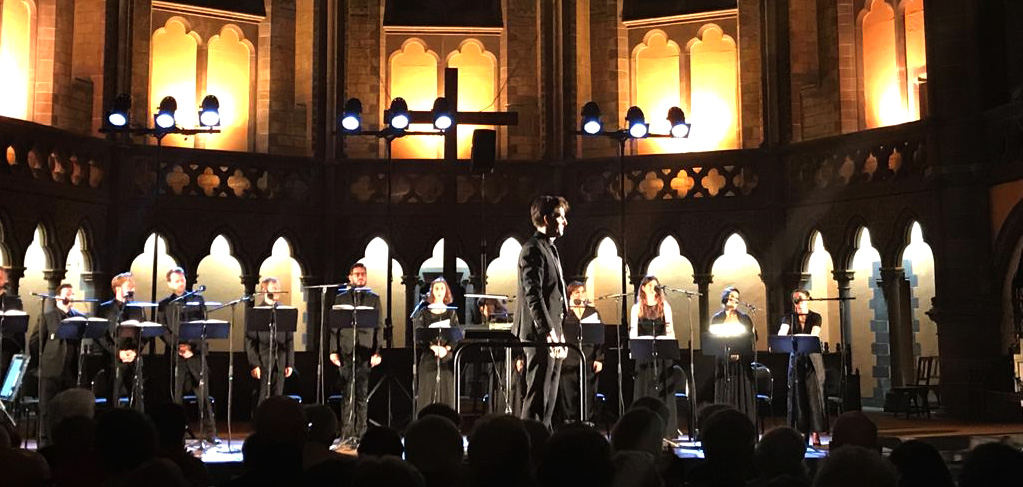
Les Métaboles decide to work, for the first time, with the score of the Italian Master.
If Aeschylus is to be believed, Io met Prometheus, in chains, while she was wandering aimlessly to escape from Hera’s vengeful jealousy. To craft the libretto of Io, frammento da Prometeo, Massimo Cacciari uses fragments of this drama, which he intertwines with excerpts from Hölderlin’s Song of destiny.
But when Luigi Nono seizes upon the textual matter, he rids it of all narrative intention and exploits its acoustic potential, considering that “in music, only sounds can speak”.
In 1975, Nono drafts the project of Prometeo - tragedia dell’ascolto (“Prometheus- tragedy of listening”), which will occupy him for a decade: a vast meditation without sets, without costumes, without characters or narrative, which totally absorbs the performance in the musical discourse. The Italian composer is denouncing the rules of the opera where the singing, by illustrating its theatrical aspect, scatters the spectator’s attention to the detriment of his listening.
Opposed to this perception, created by a frontal setting, that only directs the eyes in one direction, he conceives his work as an archipelago, where the ear of the listener is invited to move around, as if sailing between islands. Premiered on September 24th 1981 in the City of the Doges, Io is later integrated in the “Isola seconda” of Prometeo. But, if Nono confronts the priestess loved by Zeus to Titan who defied the gods, it’s also because he sees in both of these characters emblematic figures of quest and wandering. Io furthermore embodies the “choice between a balanced, thoughtful, safe existence and a problematic existence: worrisome, harrowing even – even if it brings moments of intense joy -, an existence open to all experiences to all knowledge”. Doubtless to say, he incites his audience to choose the second option, where listening becomes the goal of an awakened consciousness.
Io, frammento dal Prometeo
Luigi Nono
Massimo Cacciari, libretto
Excerpts from Eschyle, Euripide, Hérodote, Friedrich Hölderlin, Pindare, Sappho
Les Métaboles (15 singers)
Ensemble Multilatérale
Susanna Andersson, Raphaële Kennedy, Adèle Carlier, sopranos solos
Matteo Cesari, flute
Bogdan Sodyrenko, clarinet
Experimental studio SWR, electronics
Léo Warynski, direction


